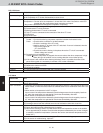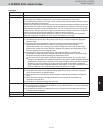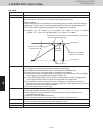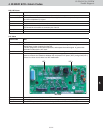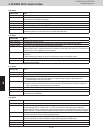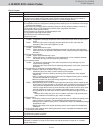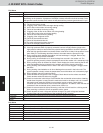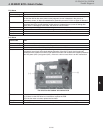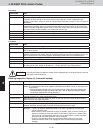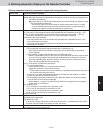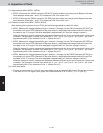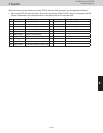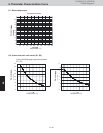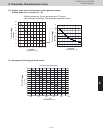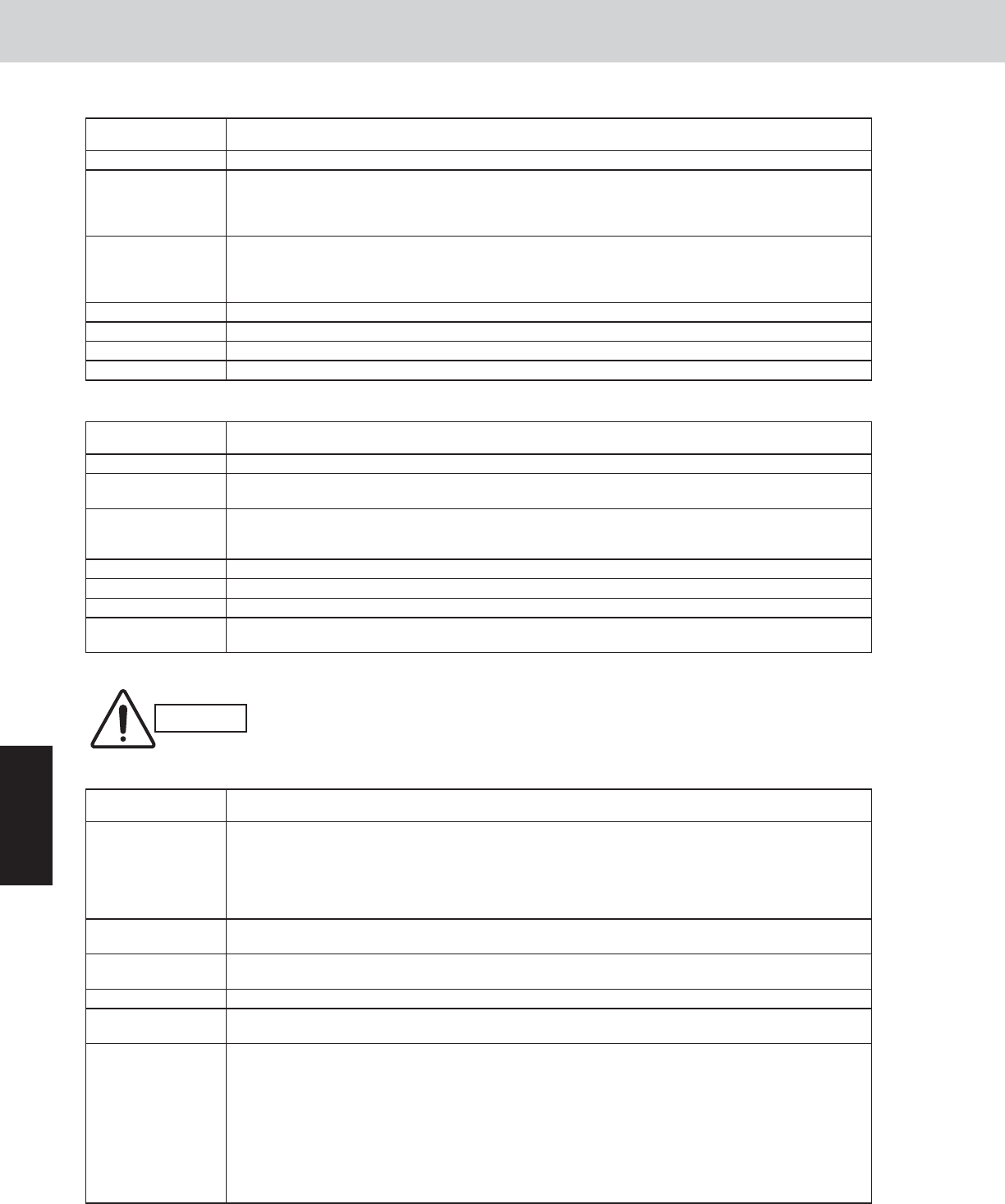
5
5 - 26
4. W-2WAY ECO-i Alarm Codes
W-2WAY ECO-i SYSTEM
Trouble Diagnosis
P26 Alarm
Alarm code P26
Alarm meaning Inverter compressor high-frequency overcurrent alarm
Alarm conditions This alarm occurs when current trouble or current detection trouble occurs at an inverter
frequency of 80 Hz or higher after start (when trouble judgment current is detected in the
primary or secondary current, or when an instantaneous secondary current of 13.5 A or higher is
detected).
Probable cause The detection methods are the same as for P16. However the fact that operation up to high
frequencies is possible does not necessarily mean that a compressor failure is the cause of the
trouble. Start the compressor several times. If alarm P26 occurs every time and alarm P16 does
not occur at all, then the possibility of a compressor failure is low.
Check Check the power wiring and connector wiring.
Correction It is possible to resolve this trouble by limiting the maximum frequency.
Example —
Notes —
P29 Alarm
Alarm code P29
Alarm meaning Inverter compressor missing phase or lock alarm
Alarm conditions This alarm may occur at start, and occurs when missing phase or lock is detected, and when a
DCCT failure occurs.
Probable cause Generally this alarm occurs when the refrigerant pressure balance is uneven at start, or when
inverter compressor lock occurs, there is a missing phase in the inverter compressor wiring, or a
DCCT failure occurs. This can be judged to be starting trouble which is not caused by HIC.
Check Check the power wiring and connector wiring.
Correction DCCT failure (replace PCB) or compressor failure
Example —
Notes Use a tester to measure the voltage between the DCCT output terminal on the rear of the PCB
and the ground. If the voltage is not within 2 – 3 V, then the DCCT has malfunctioned.
CAUTION
Currently the blinking inspection display can be displayed only on the wired remote controller
and system remote controller.
Blinking inspection display (1) (Automatic backup)
Alarm code (Blinking inspection display)
Alarm meaning Automatic backup is in progress. A/C units can be operated.
Status: The compressor at one of the outdoor units where the outdoor unit fan is running should
be operating.
* Blinking inspection display also occurs when seizing of the compressor magnet SW
is detected. Because this may also be the case, refer to “Blinking inspection display
(compressor magnet SW seizing detection).”
Alarm conditions When alarm P16, P22, P26, P29, Hx1, Hx2, or H31 has occurred, correcting the control device
(remote controller, etc.) input engages this mode.
Probable cause Because alarm P16, P22, P26, P29, Hx1, Hx2, or H31 has occurred, check the alarm history
then refer to the corresponding items.
Correction Follow the instructions in the corresponding items to correct the trouble.
Recovery After repairing the malfunctioning locations, reset the power for the system (all outdoor units).
Caution: Automatic backup mode will not be canceled until the power is reset.
Notes Automatic backup mode is not engaged in cases of alarms other than those listed above.
Reasons: • There is no need for automatic backup if recovery is possible by correcting the
remote controller input.
• With alarms for which automatic recovery is possible (such as sensor alarms), the
presence of electrical noise may result in a new alarm. However, it is believed that
this occurs for a comparatively short time only. In these cases, a mode (automatic
backup mode) that limits operation may be engaged.
• Control is not possible when a communications system alarm has occurred.
Automatic backup mode is not engaged in order to avoid causing secondary
damage.



